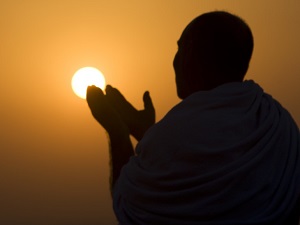I was reading about prayer. I don’t remember where. A chapter of some book. Maybe Sapiens. Virtually every religion and creed since the dawn of man, the book avowed, has practiced praying.
That may be true, but I wondered how many people actually pray. Polls of Americans project that about 55% pray every day and another 20% pray weekly. About 20% never pray.
And why do people pray?
According to Wikipedia, the big three are:
- To ask for things
- To give thanks
- To commune with the divine
I’d add two more: Prayer can remind you of what you believe and/or value. And it can remind you of how you want to live your life.
I used to pray. As a young child. But in fifth or sixth grade, I stopped believing in a god. It didn’t seem credible. So when I gave up god, I gave up praying.
Or did I?
Isn’t meditation a secular form of communing with the divine?
And each morning when I journal “three things I’m grateful for,” isn’t that a kind of praying?

And what about spontaneous victory dances? Shouting at the sky?
No, you don’t have to be religious to pray. Nor even to believe that praying can be beneficial.
I woke up last week thinking that I should add prayer to my ritual. Perhaps a morning prayer to remind me of what I value and to prompt me to behave in a manner that supports those values. I spent an hour looking at morning prayers from dozens of religions. None struck a chord. So I decided to write one myself.
My first draft was a bit messy. So I rewrote it, cutting out a few words every day. Here it is as it stands:
My life is a gift I didn’t earn and cannot claim a right to. I am amazed by and grateful for it.
It is a temporary gift that I will one day give up, but it is also a flexible one, whose dimensions can be deepened and broadened by the conscious experience of its moments.
- Some of those moments will be new. Those I will welcome.
- Some will disappoint. Those I will ignore.
- Some will be hurtful. Those I will forgive.
- Some will be threatening. Those I will respect.
- Most will be ordinary and invisible. Those I will see.
